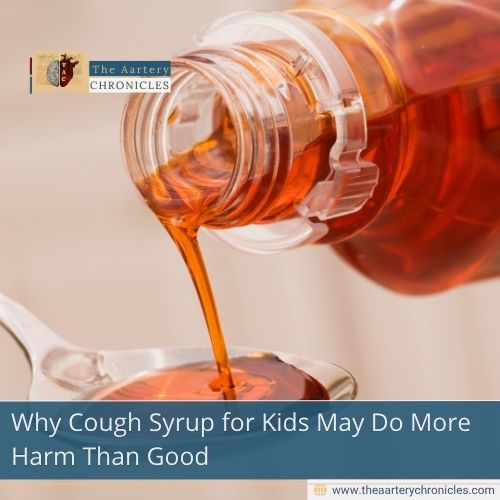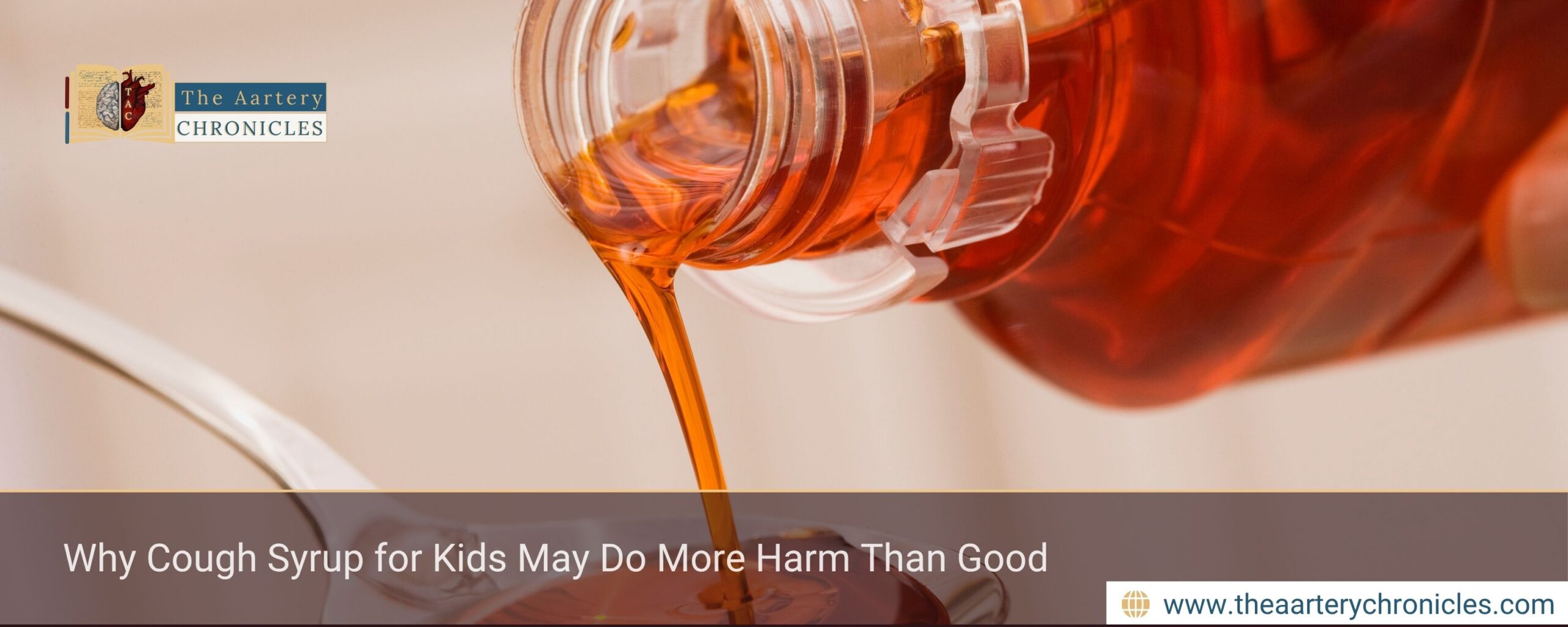

Why Cough Syrup for Kids May Do More Harm Than Good
When your child starts coughing, it’s natural to reach for a bottle of cough syrup for kids. However, pediatric experts warn that these medicines are not always the answer and sometimes, they may do more harm than good. In many cases, cough syrups only mask symptoms without treating the real cause. Overuse or misuse can even lead to side effects and, in rare cases, poisoning.
Understanding when these medicines help and when they should be avoided can protect your child’s health and ensure safe recovery.
1. Not Every Cough Needs a Syrup
Most childhood coughs come from common viral infections such as colds or the flu. These are usually mild and resolve on their own within one to two weeks. In such cases, cough syrup for kids only hides the symptom temporarily without addressing the infection itself.
Relying too heavily on syrup can also delay the correct diagnosis, especially if the cough is actually caused by asthma, allergies, or a bacterial chest infection. Therefore, before using any cough medicine, it’s important to understand what’s really causing the cough.
2. Overdosing Can Be Dangerous
Many over-the-counter cough syrups contain a combination of ingredients such as antihistamines, decongestants, or even mild narcotics like codeine. Giving too much can cause serious side effects, including dizziness, drowsiness, nausea, irregular heartbeat, or even breathing problems and seizures in severe cases.
Children’s bodies are much more sensitive to medications, meaning even a small extra spoonful can have a big impact. Doctors strongly advise against giving larger doses “just to help the cough go away faster.”
3. Kids Process Medicines Differently
Children are not simply “small adults.” Their liver and kidney functions are still developing, which means medicines stay in their system longer and can build up to unsafe levels if given too often.
That’s why pediatricians always calculate doses carefully based on a child’s exact weight. Following the doctor’s instructions and the label directions is essential to avoid accidental overdosing.
Safer and Natural Alternatives That Work
For most mild coughs, home remedies and supportive care are more effective and much safer than over-the-counter syrups. Here are a few tried-and-tested options:
- Honey (only for children over 1 year old): Soothes the throat and reduces nighttime coughing.
- Warm fluids and soups: Help ease throat irritation and keep mucus thin.
- Steam inhalation or saline nasal drops: Loosen congestion and make breathing easier.
- Adequate rest and hydration: Support the immune system for faster recovery.
These simple measures are low-cost, safe, and free from the side effects linked to cough syrup for kids.
Public Outrage and Calls for Stricter Oversight
In certain medical situations, a pediatrician may prescribe a cough syrup, especially in cases of chronic allergic cough, whooping cough, or bacterial infections that need antibiotics.
However, the type, dose, and duration of the medicine must be chosen very carefully. Self-medicating children without medical advice is risky and strongly discouraged.
Conclusion
Cough syrup for kids should be used only when prescribed by a doctor. For most common colds, natural remedies, rest, and hydration are enough to help your child recover. Over-the-counter syrups may offer short-term relief but can be harmful if overused or misused.
By focusing on supportive care and consulting your pediatrician when needed, parents can ensure their child’s cough is managed safely and effectively.
Source: Inputs from various media Sources
I’m a pharmacist with a strong background in health sciences. I hold a BSc from Delhi University and a pharmacy degree from PDM University. I write articles and daily health news while interviewing doctors to bring you the latest insights. In my free time, you’ll find me at the gym or lost in a sci-fi novel.
- Priya Bairagi
- Health News and Updates,People Forum
- 10 November 2025
- 15:00








